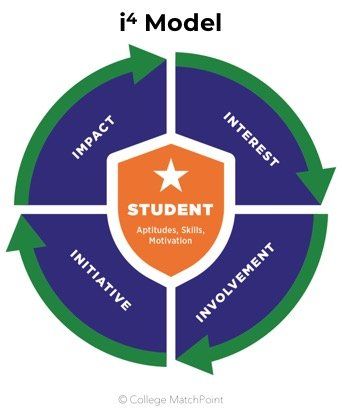This page is licensed under Creative Commons under Attribution 4.0 International. Anyone can share content from this page, with attribution and link to College MatchPoint requested.
College Planning Do's and Don’ts for Rising 9th And 10th Graders
Starting with college planning early can help reduce stress come junior and senior year—but how early is too early? We're flooded with information about how to get our children into the best colleges, and some sources suggest starting the "grooming" process in preschool. We can probably all agree that's excessive, but it can be hard to determine when it's best to begin the journey.
Is a student's freshman or sophomore year of high school too early to get started? Put simply: no. The trick is making sure your student is focusing on the right aspects of college planning and not getting too far ahead of themselves. They don't have to get everything correct as 9th or 10th graders. Instead, they should be building a strong foundation so that they'll have more options available later in high school.
The focal point in 9th and 10th grade should be engagement. According to recent research from Gallup, "Engaged students are 2.5 times more likely to say that they get excellent grades and do well in school, and they are 4.5 times more likely to be hopeful about the future than their actively disengaged peers." By engaging early, the rest of the pieces will fall into place later in high school.
With that in mind, here's what students entering their freshmen and sophomore years should and should not do as they start planning for college.
COLLEGE PLANNING DOS
- Do take school work seriously, and work to get the best grades they can.
- Do choose classes carefully. The goal is to make sure your student is well-prepared to take the most challenging courses available to them later in high school.
- Do get involved in extracurricular activities that match their aptitudes and motivators. Even in 9th or 10th grade, a student can start building an activity profile; that way, they're prepared to take on leadership roles down the road.
- Do keep summer on their radar as a time to stretch out, gain valuable skills and knowledge, and even experiment with new areas of interest.
COLLEGE PLANNING DON'TS
- Don't take highly advanced courses if they're well above a student's academic ability level. This can cause unnecessary stress, and a difficult grade can be tough on a freshman's or sophomore's confidence.
- Don't take the SAT or ACT yet. Students should take these tests no earlier than junior year; there's no real benefit to starting early.
- Don't actually start college applications. Students don't have their full story yet; plus, application questions, submission procedures, and essay prompts may change from year to year. Luckily, most application systems simply won't allow you to start this early.
- Don't jump into touring countless college campuses. It can be tempting to make every family vacation all about college tours, but we encourage families to hold off for the most part until late sophomore year at the earliest. A student's criteria for their college list can change a great deal, and you don't want to rule out colleges that might later be appealing.
Freshman and sophomore year are about engagement. By choosing the right classes, taking their work seriously, and getting involved in extracurriculars, 9th and 10th graders will be on the path to a less stressful college planning journey.

We developed the i4 Framework after years of working with students to help guide their involvement. It is something that anyone can follow. One of the best parts of our i4 framework is that it's circular in nature. A student may have involvement with very little interest, or they may be making an impact in an activity they did not initiate. The idea is to jump in, try things out, and participate. In other words—engage. Once they do that, all four I's will begin to develop in their own right.


